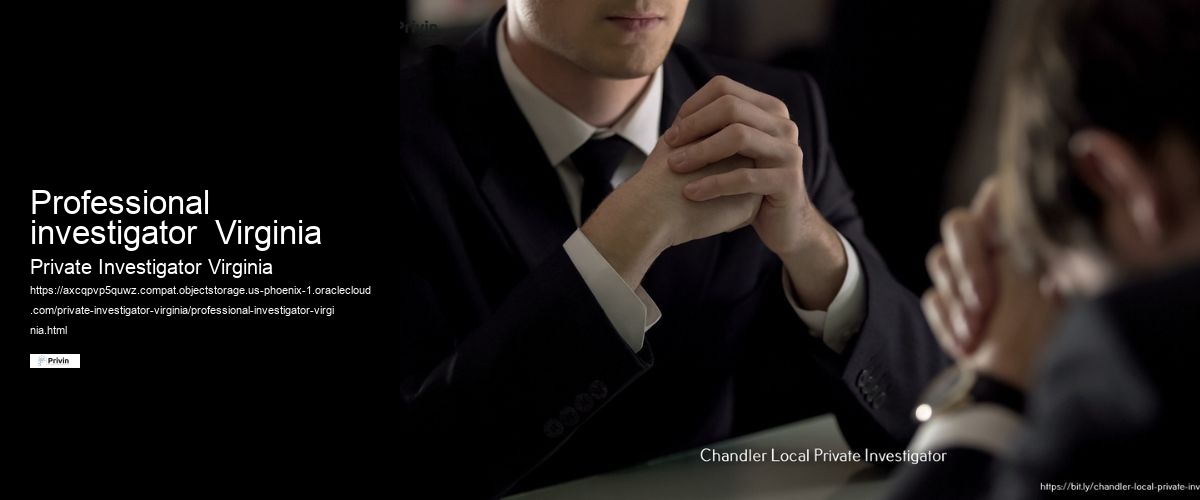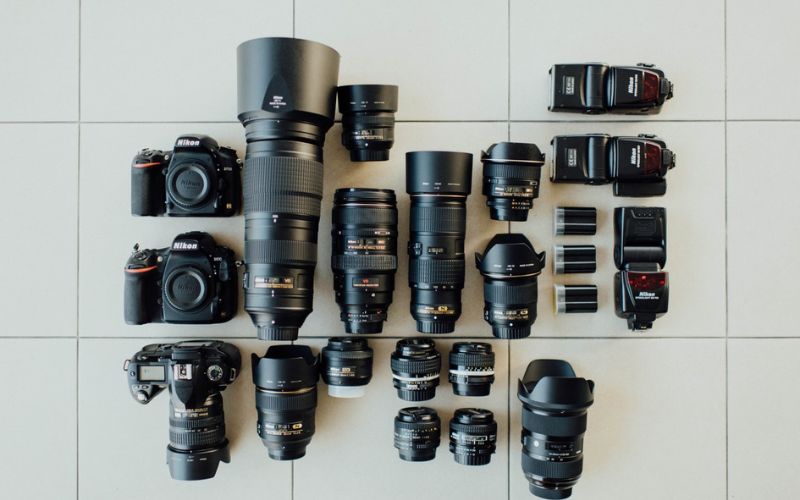
Professionalism: Private investigators should always act in a way that is professional. This means wearing the right clothes, talking to people in the right way, and treating everyone with care and professionalism.
Private investigators must follow the law and ethical rules if they want to keep their reputation, protect the rights of people, and make sure their investigations are honest. As a private investigator, you have to follow the rules and be honest.
During their investigations, private detectives often run into situations that are hard or could be dangerous. They might meet people who don't want to work with them, are hostile, or even dangerous. In cases involving crime or high-stakes investigations, private detectives may be in danger. When dealing with hard or dangerous situations, you need to be aware of the situation, have good communication skills, and be able to make quick choices to keep yourself safe and make sure the investigation goes well.
When doing their jobs, private detectives must put their own safety and security first. This means figuring out what the possible risks are before starting an investigation, knowing where they will be working, and taking the right measures. For their own safety, private detectives may need to learn how to defend themselves, wear protective gear, or work in teams. They must also know the latest safety rules and be on the lookout at all times to reduce risks.
Private detectives work within the law and must be careful to avoid legal and financial problems. They need to know the laws and rules that apply to their job and make sure that they follow them when doing investigations. If they do something wrong or don't do what they should, they could face legal consequences, damage to their image, and possible civil liabilities. To handle legal and liability risks well, private detectives must keep accurate records, follow the right procedures, and talk to lawyers.
Private detectives often look into personal cases that are sensitive or emotional, like cheating spouses, custody battles over children, or people who have gone missing. People who are going through hard and stressful times may be involved in these cases. Private investigators must handle these situations with care, professionalism, and compassion. They should be ready to deal with strong feelings, help their clients, and keep things private to protect the privacy and health of everyone concerned.
Historic Sites: Virginia is rich in history, being one of the original 13 colonies. Visit iconic landmarks like Colonial Williamsburg, Monticello, Mount Vernon, and Jamestown to explore the state's historical significance.
Shenandoah National Park: Located in the Blue Ridge Mountains, Shenandoah National Park offers stunning vistas, hiking trails, and opportunities for camping, wildlife spotting, and scenic drives along the Skyline Drive.
Beaches and Coastal Charm: Virginia has a beautiful coastline along the Atlantic Ocean. Enjoy the sandy beaches, charming coastal towns like Virginia Beach and Norfolk, and indulge in fresh seafood.
Arlington National Cemetery: Pay your respects at Arlington National Cemetery, a solemn and significant burial ground honoring American military personnel, including the Tomb of the Unknown Soldier and the gravesites of notable figures.
Richmond: Explore the capital city of Virginia, Richmond, which boasts a vibrant arts scene, historic architecture, museums, and beautiful parks along the James River.
Outdoor Recreation: Virginia offers diverse outdoor activities such as hiking, camping, fishing, boating, and kayaking. Discover the natural beauty of places like Shenandoah Valley, Great Dismal Swamp, and George Washington and Jefferson National Forests.
Wineries and Craft Breweries: Virginia is known for its wineries and craft breweries. Take a tour of the picturesque vineyards in regions like Charlottesville, Loudoun County, and Shenandoah Valley, or visit craft breweries for unique beer tasting experiences.
Civil War History: Virginia played a significant role in the American Civil War. Explore battlefields and historical sites such as Manassas National Battlefield Park and Appomattox Court House National Historical Park to learn about this crucial period.
Culinary Delights: Virginia's culinary scene offers a blend of Southern, coastal, and international flavors. Try regional specialties like Virginia ham, Chesapeake Bay crabs, and southern-style barbecue.
Festivals and Events: Virginia hosts numerous festivals and events throughout the year, celebrating music, arts, culture, and local traditions. Check the event calendars to see if any festivals align with your visit.
Nature and Wildlife: Virginia is home to diverse ecosystems, including the Chesapeake Bay, coastal marshes, and mountain ranges. Keep an eye out for unique wildlife, migratory birds, and opportunities for birdwatching and wildlife photography.
Museums and Galleries: Virginia has a wide array of museums and galleries showcasing art, science, history, and culture. Visit renowned institutions such as the Virginia Museum of Fine Arts, Science Museum of Virginia, and The Mariners' Museum and Park.
In their line of work, private investigators have to deal with a number of difficulties and risks. Private detectives can handle these problems well by taking safety precautions, following the law, and staying professional. This way, they can keep themselves safe, protect their clients' interests, and keep the integrity of their investigations.
To start a private investigation service, you need to do a few important things. Some of these are:
Business Plan: Making a detailed business plan that describes your agency's purpose, target market, services, and financial projections.

Licensing and Permits: Find out what licenses and permits are needed in your area to run a private investigation firm and get them.
Infrastructure and Resources: Setting up a real office space, buying the necessary tools and technology, and setting up systems for managing cases, storing data, and communicating with clients.
Insurance Coverage: Getting the right insurance coverage to protect your agency, workers, and clients from possible liabilities.
Hiring and Training: Finding qualified investigators and giving them a lot of training to make sure they have all the skills and information they need to do their jobs well.
For private detective firms to get clients and build a good name, they need to have good marketing plans. Some important ways to sell might be:
Setting up a professional website that shows off the services, expertise, and contact information of your business. Increasing online visibility by using search engine optimization (SEO) methods.
Social media marketing is using social media platforms to connect with potential customers, share useful information, and build a strong online presence.
Networking means going to industry conferences, joining professional groups, and actively taking part in networking events to meet lawyers, businesses, and possible clients.
Referrals and testimonials: Encouraging happy clients to give testimonials and referrals, since positive word-of-mouth can be a powerful marketing tool in the private investigation business.
Private detective firms need to think carefully about their finances to make sure they are profitable and can stay in business. Some things to think about are:
Cost structure: figuring out and managing the different costs of running the agency, such as employee salaries, equipment upkeep, office rent, licensing fees, insurance premiums, and marketing costs.
Pricing strategy: Setting prices that are affordable by taking into account market demand, the complexity of cases, the resources needed, and the investigators' level of experience. It is important to find a balance between making money and giving clients something of value.

Private investigators can provide testimony in court based on their findings and the evidence they have gathered. Their expertise and investigative reports can support legal arguments and help establish facts in a case.
When hiring a private investigator, look for qualifications such as proper licensing, relevant experience, a solid reputation, and good communication skills. Specialized training or certifications in specific investigative areas can also be beneficial.
Yes, private investigations are conducted with utmost confidentiality. Private investigators are bound by professional ethics to maintain the privacy and confidentiality of their clients and the information obtained during the investigation.